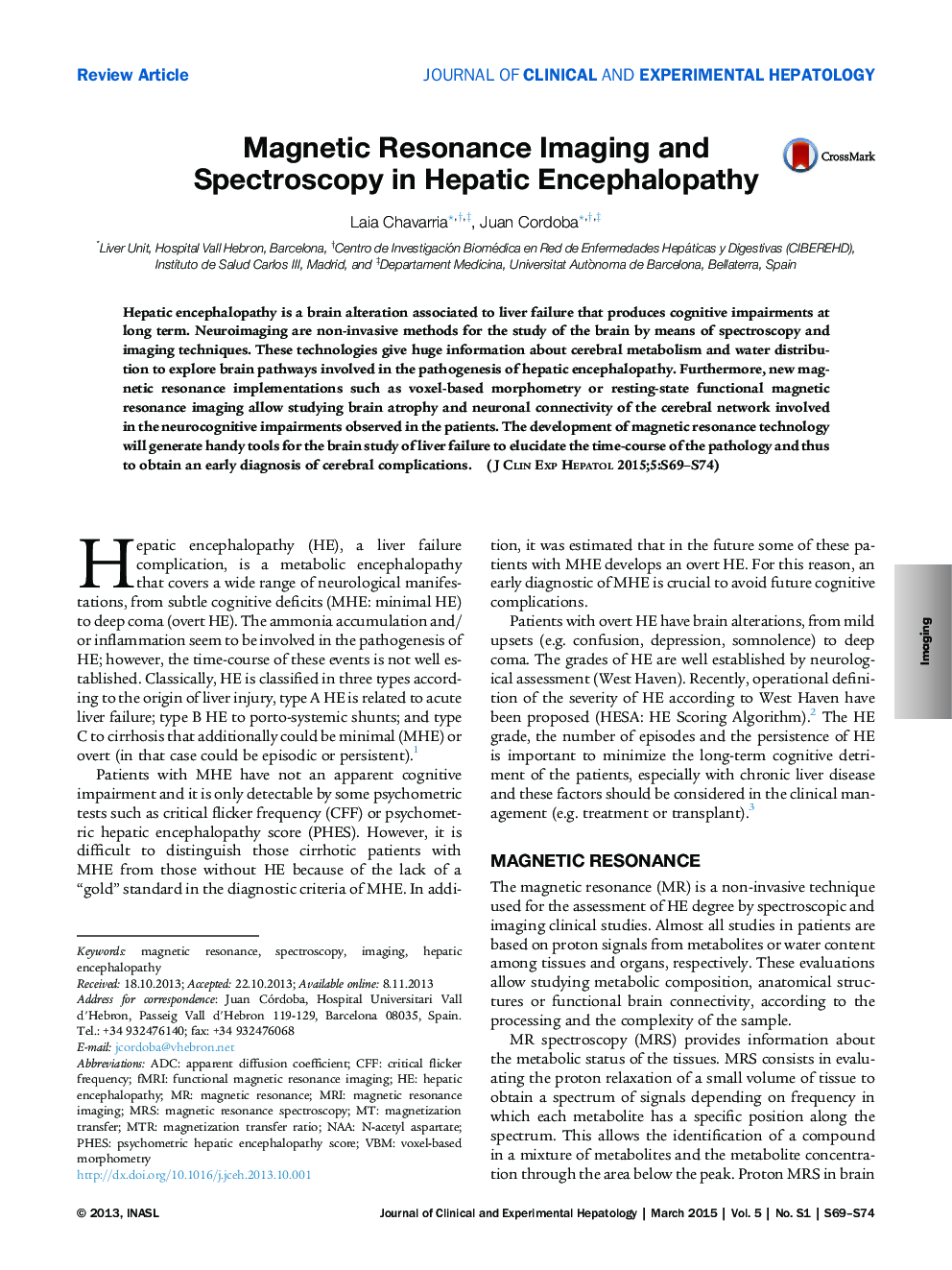| Article ID | Journal | Published Year | Pages | File Type |
|---|---|---|---|---|
| 3338698 | Journal of Clinical and Experimental Hepatology | 2015 | 6 Pages |
Hepatic encephalopathy is a brain alteration associated to liver failure that produces cognitive impairments at long term. Neuroimaging are non-invasive methods for the study of the brain by means of spectroscopy and imaging techniques. These technologies give huge information about cerebral metabolism and water distribution to explore brain pathways involved in the pathogenesis of hepatic encephalopathy. Furthermore, new magnetic resonance implementations such as voxel-based morphometry or resting-state functional magnetic resonance imaging allow studying brain atrophy and neuronal connectivity of the cerebral network involved in the neurocognitive impairments observed in the patients. The development of magnetic resonance technology will generate handy tools for the brain study of liver failure to elucidate the time-course of the pathology and thus to obtain an early diagnosis of cerebral complications.
